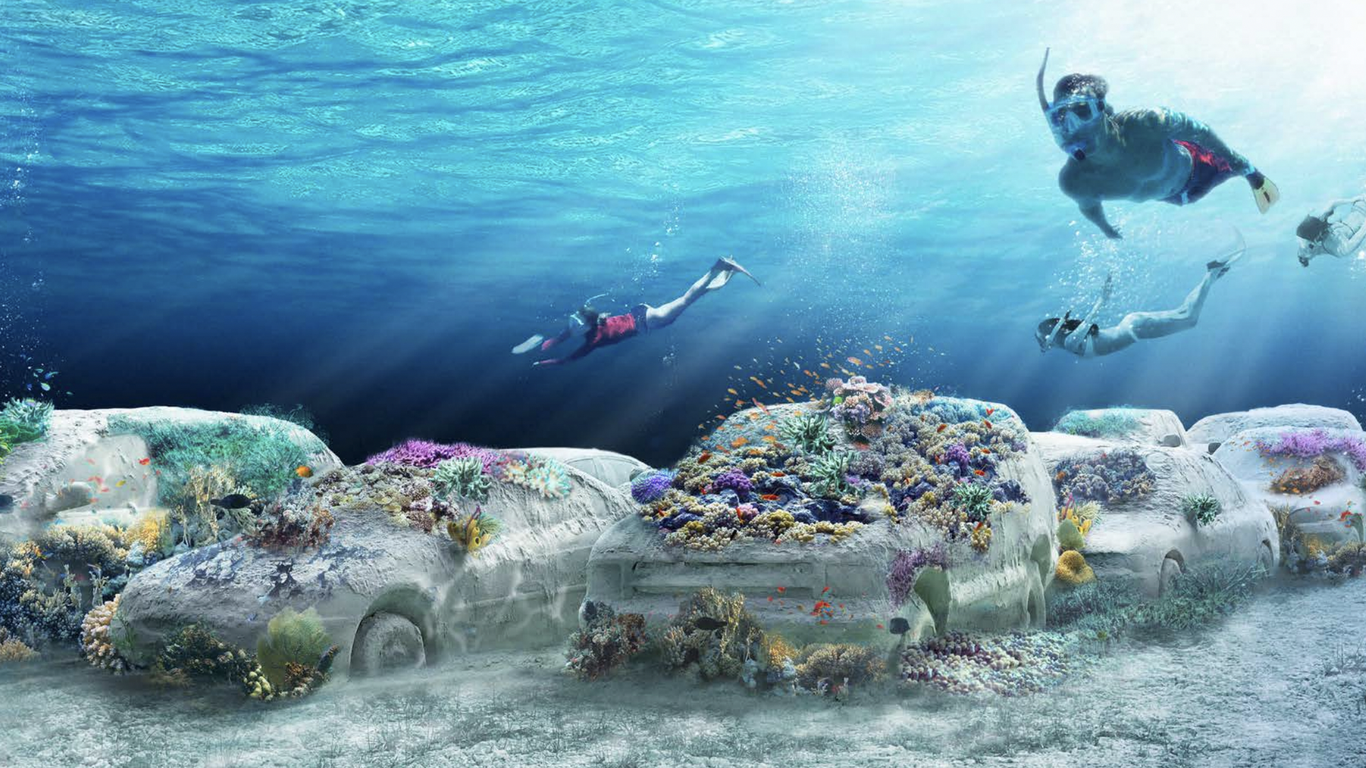Study may quell surfers’ concerns over Miami Beach ReefLine project

An artificial reef proposed for South Beach was met with a wave of resistance from surfers who feared it would ruin the surf break, but a new study suggests the project will not have a significant impact on wave height.
The background: Several years ago, a collection of artists and scientists proposed building an artificial reef and snorkel trail off Miami Beach that would include art installations, such as car-shaped sculptures placed underwater about 20 feet from shore.
- The ReefLine project, designed to start at South Beach and run for seven miles northward, is meant to call attention to the need for healthy coral reefs and the effects of climate change.
- The project secured partners including Miami Beach and Miami-Dade County and won a grant from the Knight Foundation in 2019.
The conflict: Surfers worried that the sculptures would affect how waves break at South Beach — potentially ruining one of the best spots around for surfing.
- Last fall, the Surfrider Foundation began a legal challenge against the project’s permits.
The resolution: Surfrider dropped its challenge in October, when it persuaded ReefLine’s developer, Blue Lab Preservation Society, to promise the project would not be installed south of Fourth Street, and to fund a University of Miami study on how waves may be impacted.
- Researchers ran tests in a 23-meter-long tank that can simulate wind and waves. Preliminary findings suggest the project “will not cause significant impacts to wave height at the South Beach surf break,” Surfrider announced this week.
What they’re saying: Surfrider called the results “encouraging” in a statement, but noted the study only measured wave heights and did not account for “the effects of sand flow and accretion.”
What’s ahead: A lead organizer of the project told Miami Today in June that installation, which has been delayed since December 2021, could begin this summer or fall, depending on fundraising. Otherwise, they’ll plan for spring 2023.
- Planning and startup costs are estimated at $500,000 to $800,000, and each reef section could cost $1 million to manufacture and install.

:no_upscale()/cdn.vox-cdn.com/uploads/chorus_image/image/72897325/1688594185.0.jpg)
